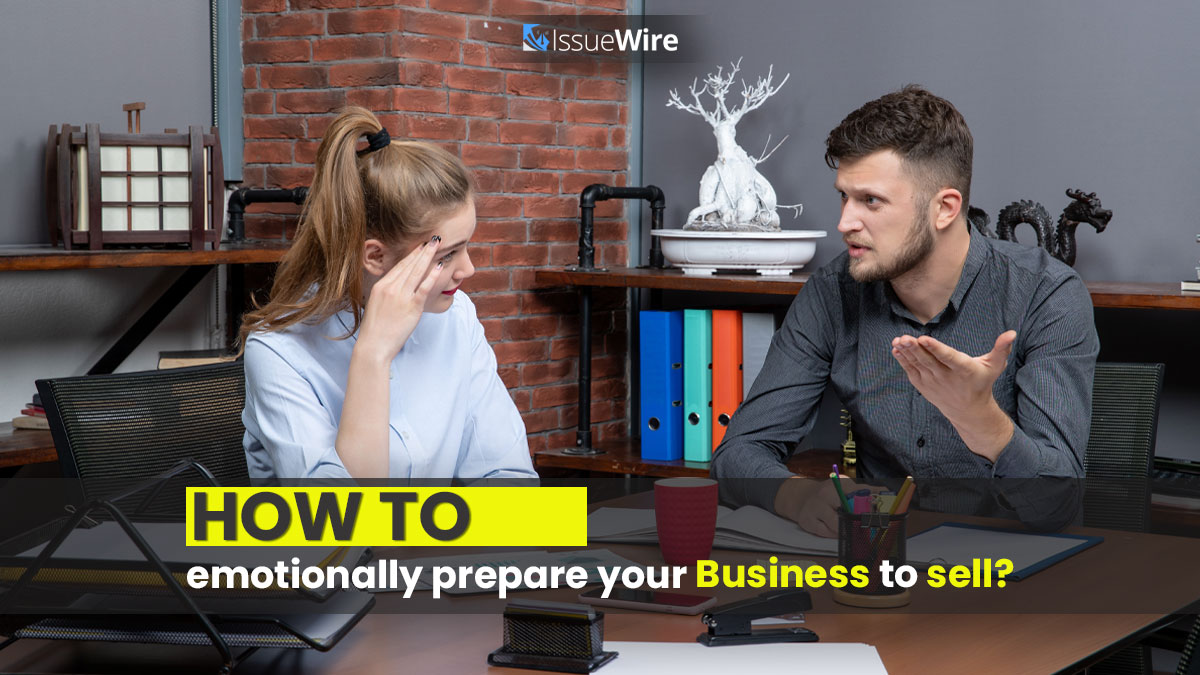A lot of business owners do not realize how emotional selling their company can be. Some end up regretting it, others feel lost without their identity as a founder. In addition to this, many are surprised by how much their self-worth was connected to the business. If you are thinking about selling your business, it is just as important to prepare emotionally as it is to prepare financially. So, here is everything you should know.
1. The Emotional Side of Selling a Business -
When most business owners sell, their focus is on the money and getting the best deal, the highest price, or solid terms. However, after the deal is done, many are hit with unexpected emotional burdens. Your business was not just a job but it was a big part of who you are as a person. So, letting it go can feel like letting go of a piece of yourself. A lot of founders feel a strange emptiness after selling. When they do not have that daily hustle, they can easily feel lost or unsure of what to do. Even when you are set financially, the fear of “What’s next?” comes to haunt you. Finding a new sense of purpose is not always easy, especially when you used to have your own business.
To make yourself emotionally prepared for the exit, you should -
- Understand that selling is not the end of the world; it is just a new chapter in your life.
- Talking to other entrepreneurs can help you know what to expect.
- Allow yourself to feel all the emotions that come with selling, even heartbreak or sadness. It is completely normal, even if selling your business was the right move for now.
2. The Emotional Rollercoaster
Selling your business is not just a financial move, it is an emotional journey as well. Most entrepreneurs go through a few common stages and knowing what to expect can make things feel less overwhelming.
The 3 most common emotional stages -
I. Excitement and Dreaming Big - In this stage, you are pumped about the deal. You start imagining life with more options, freedom, and free time.
II. Doubt and Second-guessing - At this stage, panic creeps in. You start to ask yourself, “What if I regret this?” This is the stage where a lot of people almost walk away from finalizing the deal.
III. Post-scale Identity Shift - This is the stage where the deal is done. So, you start thinking about what you do now. Without the business, many founders feel a bit lost or even unsure of who they are.
Handling the Ups and Downs -
First, expect the doubt you are experiencing. Feeling unsure of what you will do next is normal. So don’t let it throw you off. Then have a “what is next” plan for yourself ready. The more you have thought about life after the sale, the easier the transition will be. You have to remember that you are more than your business. So, start exploring who you are outside of being an entrepreneur.
3. Getting Ready for a Life After You Sell
A lot of business owners think that once they are financially set, they will automatically be happy. However, selling your business does not fix everything, it just brings new choices for your life.
Life after the exit -
- Many founders miss the rush and end yo building a business from scratch again.
- A sabbatical can help you rest and clear your mind before jumping into anything big.
- Giving back to the community, investing, or mentoring others can feel fulfilling too.
Don’t wait for the final sale, start picturing your life now!








